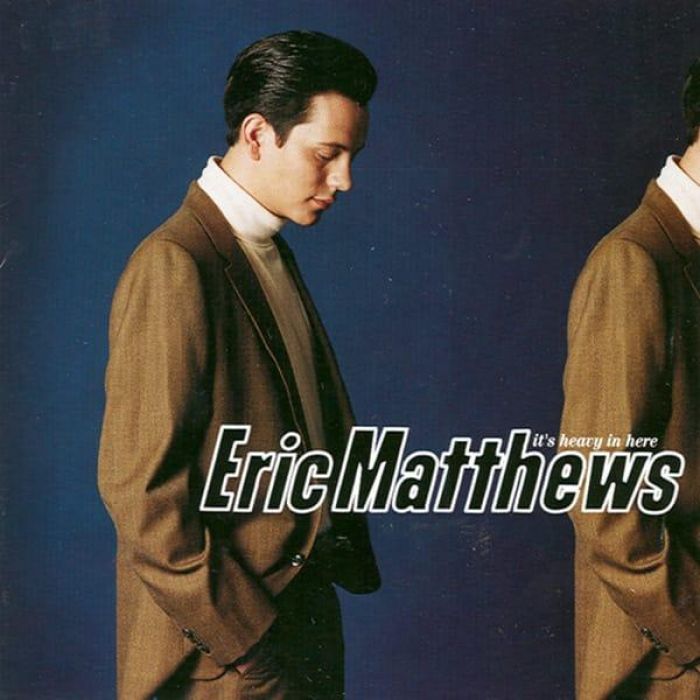It’s Heavy in Here by Eric Matthews (Review)

Pop music has become diseased and weakened by so many of the wannabe “pop” artists. These artists simply used contrived melodies and harmonies that you could swear you’ve heard a hundred times before. For a long time, I hated “pop” music, because all I ever heard was the inane chatter that clogged up the airwaves. For a long time, that is, until Eric Matthews showed me the light.
It’s Heavy in Here hearkens back to the days when pop music was heavily orchestrated with string arrangements, brass ensembles… the whole nine yards. Matthews takes that style and revamps it for the ’90s, and creates some great tunes. All of the melodies are precise, all of the hooks are dead-on. Matthews doesn’t pull any punches and the album starts off with the simply grandiose “Fanfare.” “Fanfare” marches in and plops itself down in all of its triumphant glory. Matthews’ raison d’etre seems to be summed up in the opening lines:
Did I hear you right, you’ll see me now?
I change my mind from listening to you
I pull some stretch try fright inside you
Holes on fire that burned my childhood smile
It might be late but time is guided
By open minds that fight disguises
Those last two lines ring especially true, as Matthews guides the listener on a darkly sophisticated journey that fuses jazz, pop, blues, and lounge music into something quite spectacular. All the while, Matthews’ silky-smooth voice rings in your ears as he croons his mysterious, ambiguous-yet-they-make-perfect-sense lyrics. Sometimes the references are cryptic, sometimes they are wide open. But each line seems carefully phrased to make the greatest use of the language and the images, as in “Forging Plastic Pain.”
Matthews also does the same with his music; each line, each melody, each vocal harmony seems carefully selected. On one hand, it’s pleasing to the ears. But on the other hand, it sometimes seems to lack a certain spontaneity to it, like the music has become a little too studied and practiced.
While most of the songs use the conventional drums, bass, and guitar set-up, each also features a wide range of other instruments. Matthews is an accomplished trumpeter, and uses it to create the dark atmosphere of “Fried Out Broken Girl”; the trumpet drifts and sweeps its way around the soft piano melodies. Matthews also plays the guitar, bass, organ, harpsichord, tenor recorder in addition to the trumpet and piano, showing his diverse talents. “Three Cornered Room“ ‘s melancholia is accentuated by the sweeping arrangements of the strings(again, arranged and conducted by Matthews).
Each song on this album carries itself with great weight. Although, at times, they seem to take themselves a little too seriously, the overall accomplishment is impressive. Much like Spain’s The Blue Moods of Spain, this is one of those albums that should be played in dark, smoke-filled clubs. Matthews has accomplished a great deal with this album and it’ll be interesting to see how he follows this up in later years. He has achieved an interesting, mysterious pop sound that oozes suaveness and sophistication, if sometimes a little too much of the latter. But nevertheless, it’s a great debut and hopefully, a sign of things to come.